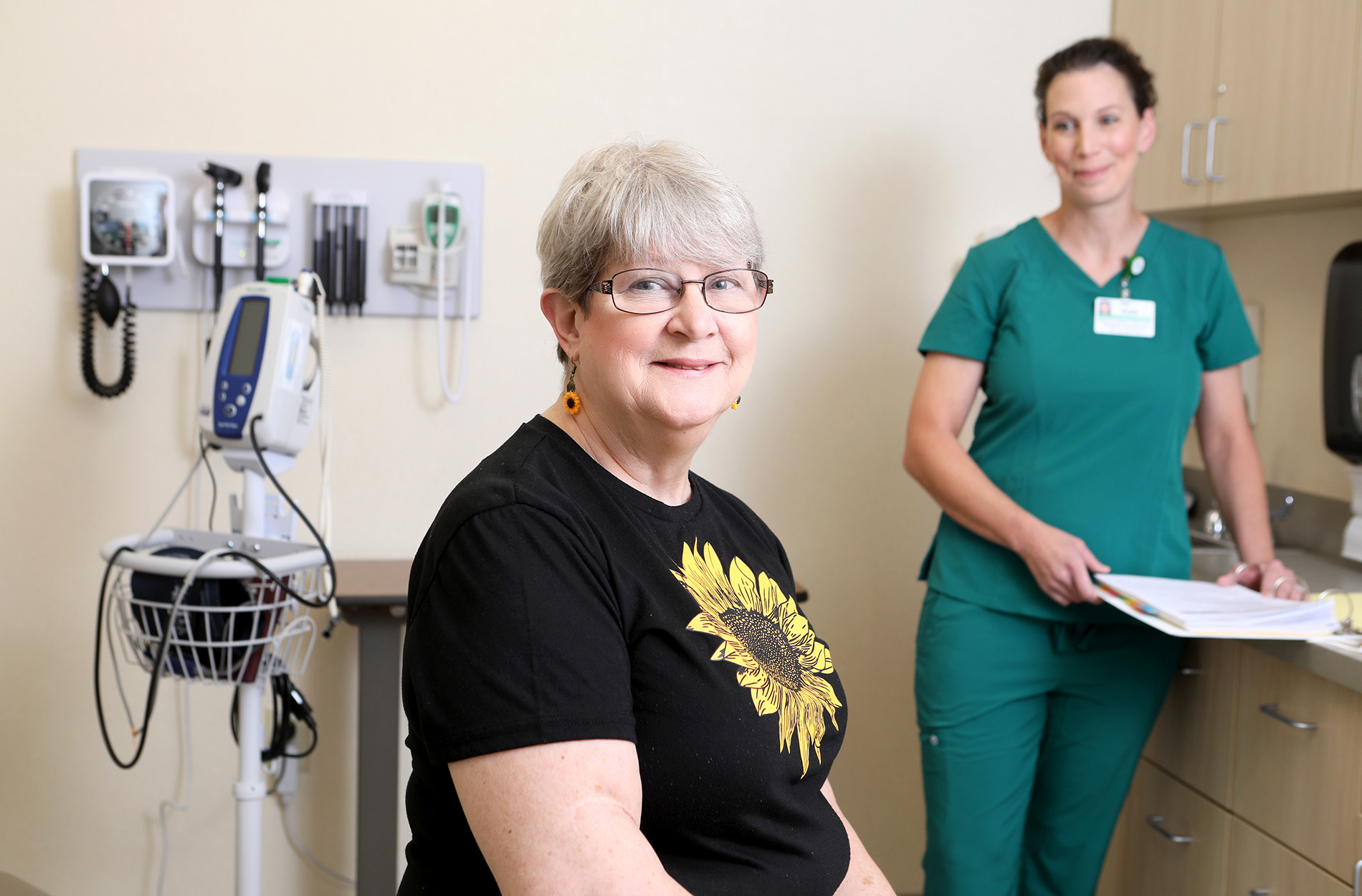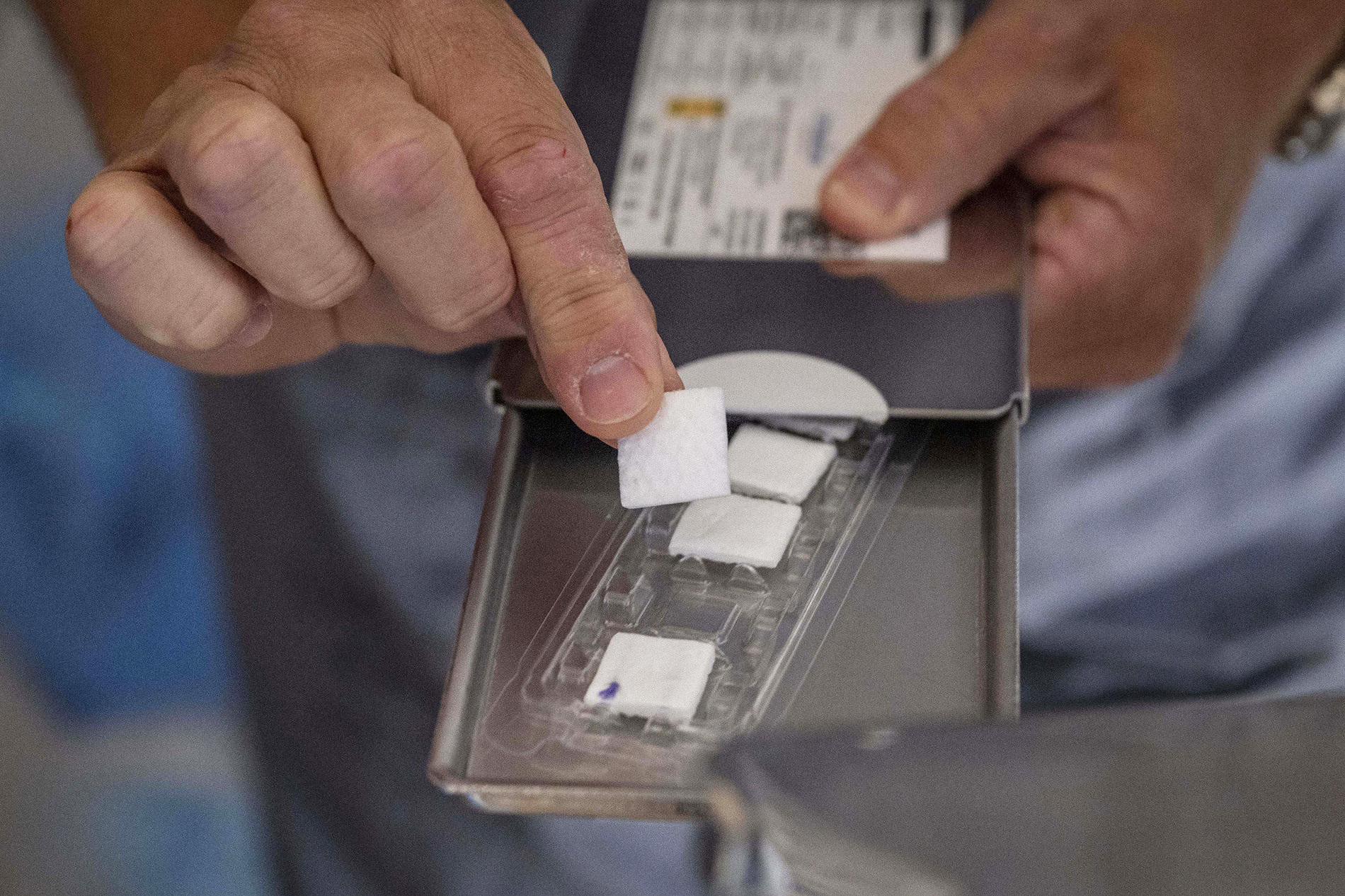Make no mistake, colorectal cancer is very serious. According to the American Cancer Society, it is the second leading cause of cancer-related deaths in the United States.
Despite that sobering statistic, the rate of colorectal cancer deaths in adults has been steadily dropping for the past few decades. It’s been decreasing by about 1 percent annually since the early 2000s.
What’s behind this steadily downward trend?
“We’re screening at an earlier age,” explains Thomas Mazza, MD, FACS, a colorectal surgeon with Lexington Surgery at Lexington Medical Center. “Until just a few years ago, the guidelines used to be age 50, and it was recommended that average-risk individuals start getting screening with a colonoscopy or other approved methods. Then, around 2018, the recommended age was lowered to 45.”
That decade-long change has produced significant results. Screening earlier means an increased chance of detecting colorectal cancer sooner, which means more effective treatment – and an increased survival rate.
“It’s always treatable, but it’s curable if you catch it early,” Dr. Mazza says. “Colorectal cancers develop without any symptoms. You may have a family history of the disease, and you have increased risk, but that doesn’t mean you’re going to have symptoms. So, they develop without pain or bleeding or changing your bowel habits. You’ll never know that things are changing and happening in your colon. That’s why we do screening procedures on people with no symptoms or problems. You screen those patients, and if you find the cancer before it’s presented with any symptoms, you’re much more likely to get it in its early stage and cure it with surgery.”
While not as many people talk about colorectal cancer as they talk about other forms of the disease, some noteworthy cases have helped bring attention to it.
South Carolina’s own Chadwick Boseman, star of the popular Black Panther franchise, passed away from colorectal cancer in 2020.
“He was young, 43, and died from colorectal cancer,” Dr. Mazza said. “So there’s been some high-profile people with colorectal cancer, which has helped call attention to it.”
So who is at risk for the disease? The short answer: Anyone.
“The two things that cause colon cancer are your genes – which you’re born with and cannot change – and your environmental factors, which are your lifestyle,” Dr. Mazza said. “A sedentary lifestyle, obesity, high-fat diets, smoking, those are all things that can contribute. We eat highly processed foods in North America, and we think that’s part of the contributing factor to colorectal cancer, but we don’t have direct evidence of that. But there’s not any one thing that’s a direct cause. You can pretty much peg lung cancer to smoking since about 95 percent of lung cancers are because of it. But that’s not the case with colorectal cancer.”
So screening, especially early on, is essential. And a traditional colonoscopy remains the gold standard for it.
“There are other methods, but they are not as sensitive and accurate a screening tool as colonoscopy,” Dr. Mazza indicated. “The latest thing now is Cologuard, a stool sample that looks for DNA in the stool shed by a tumor. If that test returns positive, it’s followed up with a colonoscopy to fully evaluate the colon for any abnormal growth.”
However, when it comes to an in-depth look at what is going on inside your body’s inner workings, the old, reliable colonoscopy still can’t be beat. It remains the all-important weapon in beating this silent killer.











Leave a comment